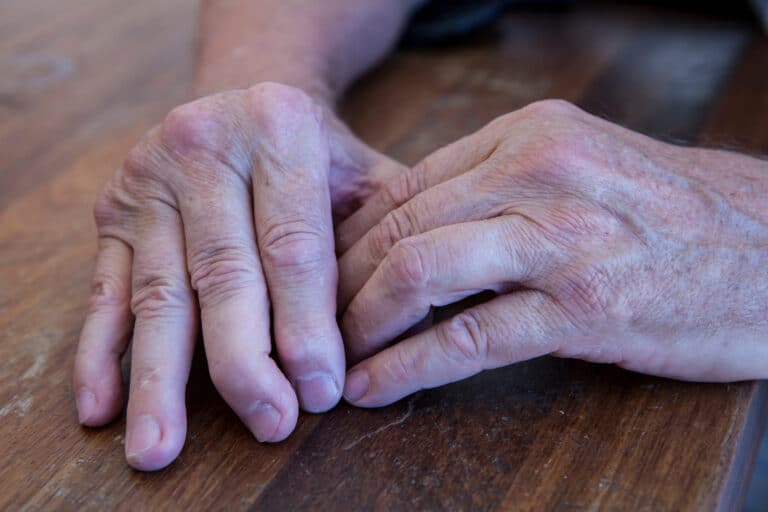Each year on October 12, the world recognizes Arthritis Day, a day to raise awareness about one of the most common disorders affecting millions worldwide.
As we observe this often debilitating disease, we join providers, researchers, patients, and their families in raising awareness of the impact of this far-reaching disease that affects people of all ages.
Arthritis is not just a disease of the joints. Stacy Courtnay is a patient advocate and works closely with the Arthritis Foundation. She shared her diagnosis of rheumatoid arthritis (RA) to raise awareness of some of the misconceptions surrounding the disease.
“Arthritis is often mistaken for something else. It’s not what doctors look for first. People don’t realize that it can affect your organs, even your eyes. I started having trouble with my eyes years ago. It was one of my first symptoms, but I didn’t even realize it was a symptom until recently.”
Stacy Courtnay
The eyes are not the only organs that can be negatively impacted by arthritis. In the dermatologic world, where the main focus is on the skin, providers are acutely aware of the significant clinical implications for the skin.
Conditions such as RA, psoriatic arthritis (PsA), axial spondyloarthritis, gout, and juvenile arthritis bring their associated health conditions and risk factors. And unfortunately, many of these rheumatological diseases may be overlooked, misdiagnosed, or underdiagnosed due to a lack of training or awareness of the most common prevailing symptoms.

Along with the continued advances in treatment, there is a need for further consideration of disease management, timely and accurate diagnosis, and shared decision-making, among others.
As practitioners who often treat patients with interconnected health issues, staying abreast of the latest research, therapies, and treatments has never been more critical to ensure optimized patient care.
You can also do your part as providers to educate your patients on the associated impacts of arthritis and what they should look out for, encouraging them to keep an eye out for any skin changes or other factors that may need further attention.















